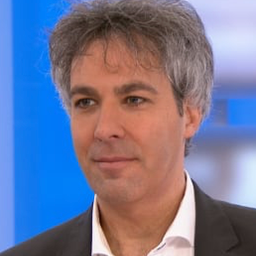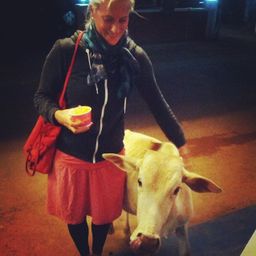WORKSHOP 10: Animal Sentience: The Legal Status of Nonhuman Species (Alain Roy, Nicolas Morello)
Themes:
Animal Lawbioethicssentient beings
What:
Workshop
When:
7:30 PM, Friday 6 Jul 2018
(2 hours)
Where:
Université du Québec à Montréal
- DS-R510
This Workshop is about current and future developents in the legal status of sentient species: how can the law protect the biological imperatives of the members of the species whose cognitive and emotional capacities and needs have been on display in this 10-day summer school in the cognitive sciences?

Alain Roy (Speaker)
Professeur de droit animalier Université de Montréal
Professeur de droit animalier Université de Montréal

Nicolas Morello (Speaker)
Co-fondateur Droit animalier Québec (DAQ)
Co-fondateur Droit animalier Québec (DAQ)

Jennifer Mather (Discussant)
University of Lethbridg
University of Lethbridg

Adam Shriver (Discussant)
Professor Oxford Uehiro Centre for Practical Ethics
Professor Oxford Uehiro Centre for Practical Ethics

Kathrin Herrmann (Discussant)
Assistant Scientist Center for Alternatives to Animal Testing, Johns Hopkins Bloomberg School of Public Health
Assistant Scientist Center for Alternatives to Animal Testing, Johns Hopkins Bloomberg School of Public Health
2015-2025 and the Fate of Animal Beings in Québec : A Promising or Illusory New Legal Paradigm?
Alain Roy
Alain Roy
Professor, Université de Montréal, Faculty of Law
It is a great pleasure for me to be here today to present a special matter that is, in a way, the first real test for the Animal Welfare and Safety Act passed by the National Assembly of Quebec in December 2015 [Slide]. Act commonly known as the "BESA Act".
A law that inspired me to set up an Ethics and Animal Law course at Université de Montréal’s Faculty of Law, where I teach family law and children’s rights law since 1999. I must tell you that I have been interested in animal rights for many years, but to justify setting up a new law course requires a minimum of legal content to present to the students, and prior to December 2015, let’s say that this requirement was not yet met.
Minister Pierre Paradis, who sponsored the BESA Act, claims loud and clear that the adoption of this law amounts to a 200-year leap forward in animal welfare. When we read the law, we can only agree with him.
[Slide] The BESA Act (Bien-Etre et Sécurité Animal – Animal Welfare and Security Act) establishes a new social and legal paradigm by redefining the notion of animal. According to this law, animals are no longer just “movable property.” Henceforth they must be considered "sentient beings with biological imperatives".
[Slide] As a consequence, the new law forbids any "abuse or mistreatment that may affect the health of animal beings". Note the word "may." This refers explicitly to the element of risk or potentiality, which this law uses as its criterion. It is important to clearly understand what this means. To demonstrate the offense, it is not necessary to demonstrate damage to health, but rather a risk of such damage. // The law also forbids "acts or omissions exposing animal beings to distress". Maître Morello will explain the law’s implications in his presentation.
There is a notable exception to this new law, however, which is not based on species but on human use: experimental and farm animals are not subject to its protection. It can be inferred that the legislator considers the intended use of these animal beings as necessary for the human species, thus justifying such exclusion.
Thus, subject to this exception, there is a paradigm shift, dictated by the evolution of knowledge and morals to which the legislator refers in the preamble to the BESA Act: [Slide]
¬ The condition of animals has become a social concern;
¬ And the human species has an individual and collective responsibility to ensure animal welfare and safety.
In short, there is a before 2015, and an after 2015. In the words of Minister Paradis: a 200-year leap forward.
*
You may know law students. Very quick-witted people… Thus, in a course on ethics and animal rights, it did not take long for them to realise that the fine legal principles were not being reflected enough in practice, notably in regard to so-called entertainment activities, where the traditional criterion of “necessity,” behind which some are rallying to justify all kinds of abusive uses, is in this case particular case ripe for refutation.
Not only did the new law not seem to be inspiring challenges to the recreational events that existed well before December 2015, but ironically, [Slide] new events using animals for entertainment emerged after December 2015, notable the “urban rodeo” that the city of Montreal got the idea of launching to mark its 375th anniversary in 2017.
Law students are not only quick-witted -- they are also very willing. Thus, when in March 2017 I proposed an applied law project that would take the form of a call for an injunction against Montreal’s urban rodeo based on the new provisions of the BESA Act, around twenty of the students volunteered spontaneously to document the file -- without course credit in return.
Let's look at the steps of the process one by one:
[SLIDE] The request for an injunction is filed on May 24 before QuebecSuperior Court.
[SLIDE] The urban rodeo for which we request cancellation is scheduled for August 24-27, in the Old Port of Montreal.
The first day of out of court examination is scheduled for June 10. We can easily imagine the pressure that the call for an injunction exerted on the event’s organizers and that this pressure led them to be open to a settlement.
... Obliviously, we had leverage. For us, this was an opportunity to move the debate from the limited judicial sphere in which it had been circumscribed, to the social and political sphere, and above all, to expand it beyond just the Montreal rodeo: It’s the Western Festival of St-Tite that organized the Montreal rodeo, we knew that St-Tite version includes all activities, [Slide] not only horse and bull riding activities on the program in Montreal, [Slide] but also calf-roping and steer wrestling.
[Slide] So we took advantage of the leverage we had to negotiate an agreement that the court approved on June 16.
[Slide] First component of the protocol: I am granted unlimited access to the rodeo facilities and animals, not only in Montreal, but also, and far more important, in St-Tite. Also, to maximize observations, [Slide] I am granted the possibility to exercise my right through three representatives who are permitted to film all the rodeo events from the angle of their choice.
[Slide] In accordance with the court-approved agreement, I am entitled to publish the data, analysis and findings in a report ("The Plaintiff’s Report") whose conclusions are to be submitted to an advisory committee to be formed by the Quebec Ministry of Agriculture, Fisheries and Food ("MAPAQ", which is responsible for applying the new law).
[Slide] The Western Festival of St-Tite (FWST) agrees to my request to submit a joint request to MAPAQ to create a joint committee on the issue of rodeos as a whole. Here again, we want to aim wide, knowing that there are about 150 rodeos a year in Quebec organized throughout the province. The transaction approved by the Court provides that this committee will be composed of:
[Slide]
¬ three members representing animal rights that I am to designate;
¬ three members representing the rodeo industry that my opponents are to designate;
¬ two MAPAQ representatives, to be appointed by MAPAQ.
The committee’s mandate has three components:
¬ [Slide] Identify the different animal welfare and safety standards applicable to rodeo activities in the province of Quebec;
¬ [Slide] Evaluate the scope and sufficiency of these standards, in light of the laws in force, by referring in particular to the published scientific literature on rodeos and the "Plaintiff’s Report”;
¬ [Slide] Make recommendations to the Minister of Agriculture, Fisheries and Food of Quebec for ensuring the welfare and safety of animal beings, no later than one year after its creation.
MAPAQ accepts this joint request on July 19, 2017 and the Advisory Committee formally begins its work on August 15.
[Slide] As animal rights representatives, I appointed Dr. Josianne Arbour, Pr. Stevan Harnad and Me Nicolas Morello to the Advisory Committee. Each of these individuals agreed to serve on the Committee on a voluntary basis.
[Slide] My opponents, for their part, appointed Mr. Pascal Lafrenière, FWST's general manager, Mr. Sylvain Bourgeois, President of Wildtimes productions, and Dr. Pierre Tardif the veterinarian who works at the St-Tite Festival.
[Slide] Back to the first part of the protocol: my 3 observers at the Montreal and St-Tite rodeos captured 135 hours of continuous images from 3 different angles at the 20 rodeos that took place. This allowed us to build a unique and extremely rich database. At St-Tite, my 3 observers were accompanied by a bailiff, to enable them to do their job as efficiently as possible.
To the FWST's great displeasure, my observers were not laymen.
[Slide] Steve Hindi and Michael Kobliska, from the SHARK organization in Chicago volunteered to help us for free; SHARK is the biggest and most active anti-rodeo organisation in the United States of America.
[Slide] Third observer: Dr. Kona-Boun, doctor or veterinary medicine and chief of anesthesiology at the DMV Emergency Hospital.
I was able to give Dr. Kona-Boun all three videotapes of 45 hours each on November 7 so he could proceed to perform a frame-by-frame analysis with in order to identify, for each kind of rodeo activity, every risk, major or minor, to their physical or psychological health to which the animal beings used in the rodeo were exposed. [Slide] Dr. Kona-Boun spent over 360 hours watching the video tapes, frame by frame. Last February he provided me with his 610-page analysis, which I co-signed in a report [Slide] that you can find on my website and that constitutes the "Plaintiff's Report", submitted in accordance with the Superior-court approved agreement.
This is the report I made public last April.
The MAPAQ Committee's mandate now consists of reviewing Dr. Kona-Boun's observations and analyses, including by submitting them to other external experts they have appointed. Apart from MAPAQ’s consultation of experts, we too have consulted qualified external experts. [Slide] My website includes the reactions from experts around the world, veterinarians and ethologists, with whom we have shared Dr. Kona-Boun's data and analyses. In the meantime, FWST provided a refutation of Dr. Kona-Boun's analyses from a consultant, Ms. Jennifer Woods, a non-veterinarian with business ties with the Calgary Stampede
[Slide] After reading all the studies and analyses it judges appropriate and relevant, the Committee is to "make recommendations to MAPAQ that it considers relevant for the purpose of ensuring the welfare and safety of animal beings, no later than one year after its creation".
One year after its creation ... that is to say, next August.
What will happen after the tabling of the MAPAQ Committee's report?
Here is article 6 of the court-approved transaction: I quote:
[Slide] " […] The Western Festival, […] undertakes not to bring [….] against the Plaintiff any claim for damages or any other type of claim of any nature whatsoever […] for any damage or other cause of action […] that would result directly or indirectly from a declaratory remedy or in a judicial review undertaken by the Plaintiff with respect to the legality of the rodeo and […] gives full and final discharge to the Plaintiff for this purpose, without admission of the Plaintiff's interest in bringing such action."
To put this in straightforward terms, if at the end of the process, MAPAQ does not do anything -- does not do what is required to ensure compliance with the BESA Act -- we will return to court, since I have reserved all my rights in this regard in the agreement. We are in a state of law, there is a legislative framework, and the ultimate decision maker is not MAPAQ but the court.
In the meantime, given my independence, I feel it is my duty to share all my evidence openly and publicly, to be seen and known by all. This is my duty, first, because animal rights should not be discussed behind closed doors, either by MAPAQ or by any other entity or committee. I remind you of the preamble of the law, which speaks of animal welfare as a matter of societal concern and responsibility, both collective and individual. In addition, I am a university researcher and the university does not pay me to do secret research. I would have categorically refused to sign any confidentiality agreement whatsoever.
On this note, I leave you with the clip that I aired on April 4 in the media based on highlights from the report of Dr. Kona Boun. This clip has had over 275,000 views.
Strong images that, contrary to what some might wish to claim, were not taken out of context. You can judge for yourselves by consulting Dr. Kona Boun's 600-page report on my website and the other video highlights provided there. For the full 3 x 45 hours of raw data, I urge everyone to request it from MAPAQ, with the help of the Freedom of Information Act, of necessary.
It is a great pleasure for me to be here today to present a special matter that is, in a way, the first real test for the Animal Welfare and Safety Act passed by the National Assembly of Quebec in December 2015 [Slide]. Act commonly known as the "BESA Act".
A law that inspired me to set up an Ethics and Animal Law course at Université de Montréal’s Faculty of Law, where I teach family law and children’s rights law since 1999. I must tell you that I have been interested in animal rights for many years, but to justify setting up a new law course requires a minimum of legal content to present to the students, and prior to December 2015, let’s say that this requirement was not yet met.
Minister Pierre Paradis, who sponsored the BESA Act, claims loud and clear that the adoption of this law amounts to a 200-year leap forward in animal welfare. When we read the law, we can only agree with him.
[Slide] The BESA Act (Bien-Etre et Sécurité Animal – Animal Welfare and Security Act) establishes a new social and legal paradigm by redefining the notion of animal. According to this law, animals are no longer just “movable property.” Henceforth they must be considered "sentient beings with biological imperatives".
[Slide] As a consequence, the new law forbids any "abuse or mistreatment that may affect the health of animal beings". Note the word "may." This refers explicitly to the element of risk or potentiality, which this law uses as its criterion. It is important to clearly understand what this means. To demonstrate the offense, it is not necessary to demonstrate damage to health, but rather a risk of such damage. // The law also forbids "acts or omissions exposing animal beings to distress". Maître Morello will explain the law’s implications in his presentation.
There is a notable exception to this new law, however, which is not based on species but on human use: experimental and farm animals are not subject to its protection. It can be inferred that the legislator considers the intended use of these animal beings as necessary for the human species, thus justifying such exclusion.
Thus, subject to this exception, there is a paradigm shift, dictated by the evolution of knowledge and morals to which the legislator refers in the preamble to the BESA Act: [Slide]
¬ The condition of animals has become a social concern;
¬ And the human species has an individual and collective responsibility to ensure animal welfare and safety.
In short, there is a before 2015, and an after 2015. In the words of Minister Paradis: a 200-year leap forward.
*
You may know law students. Very quick-witted people… Thus, in a course on ethics and animal rights, it did not take long for them to realise that the fine legal principles were not being reflected enough in practice, notably in regard to so-called entertainment activities, where the traditional criterion of “necessity,” behind which some are rallying to justify all kinds of abusive uses, is in this case particular case ripe for refutation.
Not only did the new law not seem to be inspiring challenges to the recreational events that existed well before December 2015, but ironically, [Slide] new events using animals for entertainment emerged after December 2015, notable the “urban rodeo” that the city of Montreal got the idea of launching to mark its 375th anniversary in 2017.
Law students are not only quick-witted -- they are also very willing. Thus, when in March 2017 I proposed an applied law project that would take the form of a call for an injunction against Montreal’s urban rodeo based on the new provisions of the BESA Act, around twenty of the students volunteered spontaneously to document the file -- without course credit in return.
Let's look at the steps of the process one by one:
[SLIDE] The request for an injunction is filed on May 24 before QuebecSuperior Court.
[SLIDE] The urban rodeo for which we request cancellation is scheduled for August 24-27, in the Old Port of Montreal.
The first day of out of court examination is scheduled for June 10. We can easily imagine the pressure that the call for an injunction exerted on the event’s organizers and that this pressure led them to be open to a settlement.
... Obliviously, we had leverage. For us, this was an opportunity to move the debate from the limited judicial sphere in which it had been circumscribed, to the social and political sphere, and above all, to expand it beyond just the Montreal rodeo: It’s the Western Festival of St-Tite that organized the Montreal rodeo, we knew that St-Tite version includes all activities, [Slide] not only horse and bull riding activities on the program in Montreal, [Slide] but also calf-roping and steer wrestling.
[Slide] So we took advantage of the leverage we had to negotiate an agreement that the court approved on June 16.
[Slide] First component of the protocol: I am granted unlimited access to the rodeo facilities and animals, not only in Montreal, but also, and far more important, in St-Tite. Also, to maximize observations, [Slide] I am granted the possibility to exercise my right through three representatives who are permitted to film all the rodeo events from the angle of their choice.
[Slide] In accordance with the court-approved agreement, I am entitled to publish the data, analysis and findings in a report ("The Plaintiff’s Report") whose conclusions are to be submitted to an advisory committee to be formed by the Quebec Ministry of Agriculture, Fisheries and Food ("MAPAQ", which is responsible for applying the new law).
[Slide] The Western Festival of St-Tite (FWST) agrees to my request to submit a joint request to MAPAQ to create a joint committee on the issue of rodeos as a whole. Here again, we want to aim wide, knowing that there are about 150 rodeos a year in Quebec organized throughout the province. The transaction approved by the Court provides that this committee will be composed of:
[Slide]
¬ three members representing animal rights that I am to designate;
¬ three members representing the rodeo industry that my opponents are to designate;
¬ two MAPAQ representatives, to be appointed by MAPAQ.
The committee’s mandate has three components:
¬ [Slide] Identify the different animal welfare and safety standards applicable to rodeo activities in the province of Quebec;
¬ [Slide] Evaluate the scope and sufficiency of these standards, in light of the laws in force, by referring in particular to the published scientific literature on rodeos and the "Plaintiff’s Report”;
¬ [Slide] Make recommendations to the Minister of Agriculture, Fisheries and Food of Quebec for ensuring the welfare and safety of animal beings, no later than one year after its creation.
MAPAQ accepts this joint request on July 19, 2017 and the Advisory Committee formally begins its work on August 15.
[Slide] As animal rights representatives, I appointed Dr. Josianne Arbour, Pr. Stevan Harnad and Me Nicolas Morello to the Advisory Committee. Each of these individuals agreed to serve on the Committee on a voluntary basis.
[Slide] My opponents, for their part, appointed Mr. Pascal Lafrenière, FWST's general manager, Mr. Sylvain Bourgeois, President of Wildtimes productions, and Dr. Pierre Tardif the veterinarian who works at the St-Tite Festival.
[Slide] Back to the first part of the protocol: my 3 observers at the Montreal and St-Tite rodeos captured 135 hours of continuous images from 3 different angles at the 20 rodeos that took place. This allowed us to build a unique and extremely rich database. At St-Tite, my 3 observers were accompanied by a bailiff, to enable them to do their job as efficiently as possible.
To the FWST's great displeasure, my observers were not laymen.
[Slide] Steve Hindi and Michael Kobliska, from the SHARK organization in Chicago volunteered to help us for free; SHARK is the biggest and most active anti-rodeo organisation in the United States of America.
[Slide] Third observer: Dr. Kona-Boun, doctor or veterinary medicine and chief of anesthesiology at the DMV Emergency Hospital.
I was able to give Dr. Kona-Boun all three videotapes of 45 hours each on November 7 so he could proceed to perform a frame-by-frame analysis with in order to identify, for each kind of rodeo activity, every risk, major or minor, to their physical or psychological health to which the animal beings used in the rodeo were exposed. [Slide] Dr. Kona-Boun spent over 360 hours watching the video tapes, frame by frame. Last February he provided me with his 610-page analysis, which I co-signed in a report [Slide] that you can find on my website and that constitutes the "Plaintiff's Report", submitted in accordance with the Superior-court approved agreement.
This is the report I made public last April.
The MAPAQ Committee's mandate now consists of reviewing Dr. Kona-Boun's observations and analyses, including by submitting them to other external experts they have appointed. Apart from MAPAQ’s consultation of experts, we too have consulted qualified external experts. [Slide] My website includes the reactions from experts around the world, veterinarians and ethologists, with whom we have shared Dr. Kona-Boun's data and analyses. In the meantime, FWST provided a refutation of Dr. Kona-Boun's analyses from a consultant, Ms. Jennifer Woods, a non-veterinarian with business ties with the Calgary Stampede
[Slide] After reading all the studies and analyses it judges appropriate and relevant, the Committee is to "make recommendations to MAPAQ that it considers relevant for the purpose of ensuring the welfare and safety of animal beings, no later than one year after its creation".
One year after its creation ... that is to say, next August.
What will happen after the tabling of the MAPAQ Committee's report?
Here is article 6 of the court-approved transaction: I quote:
[Slide] " […] The Western Festival, […] undertakes not to bring [….] against the Plaintiff any claim for damages or any other type of claim of any nature whatsoever […] for any damage or other cause of action […] that would result directly or indirectly from a declaratory remedy or in a judicial review undertaken by the Plaintiff with respect to the legality of the rodeo and […] gives full and final discharge to the Plaintiff for this purpose, without admission of the Plaintiff's interest in bringing such action."
To put this in straightforward terms, if at the end of the process, MAPAQ does not do anything -- does not do what is required to ensure compliance with the BESA Act -- we will return to court, since I have reserved all my rights in this regard in the agreement. We are in a state of law, there is a legislative framework, and the ultimate decision maker is not MAPAQ but the court.
In the meantime, given my independence, I feel it is my duty to share all my evidence openly and publicly, to be seen and known by all. This is my duty, first, because animal rights should not be discussed behind closed doors, either by MAPAQ or by any other entity or committee. I remind you of the preamble of the law, which speaks of animal welfare as a matter of societal concern and responsibility, both collective and individual. In addition, I am a university researcher and the university does not pay me to do secret research. I would have categorically refused to sign any confidentiality agreement whatsoever.
On this note, I leave you with the clip that I aired on April 4 in the media based on highlights from the report of Dr. Kona Boun. This clip has had over 275,000 views.
Strong images that, contrary to what some might wish to claim, were not taken out of context. You can judge for yourselves by consulting Dr. Kona Boun's 600-page report on my website and the other video highlights provided there. For the full 3 x 45 hours of raw data, I urge everyone to request it from MAPAQ, with the help of the Freedom of Information Act, of necessary.
Other Participant
Center for Alternatives to Animal Testing, Johns Hopkins Bloomberg School of Public Health
Assistant Scientist






